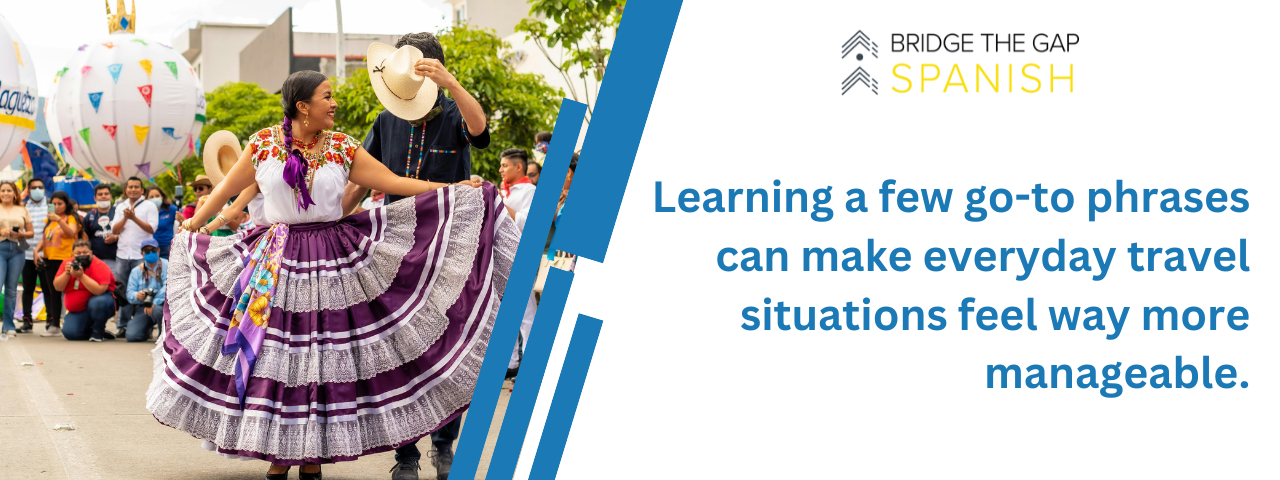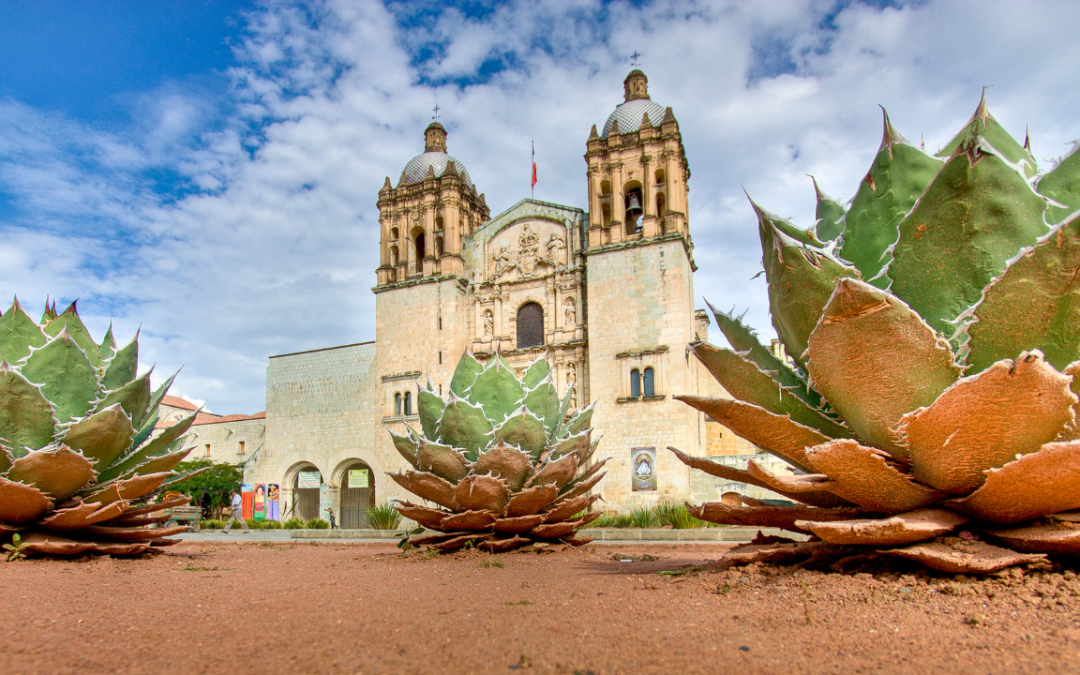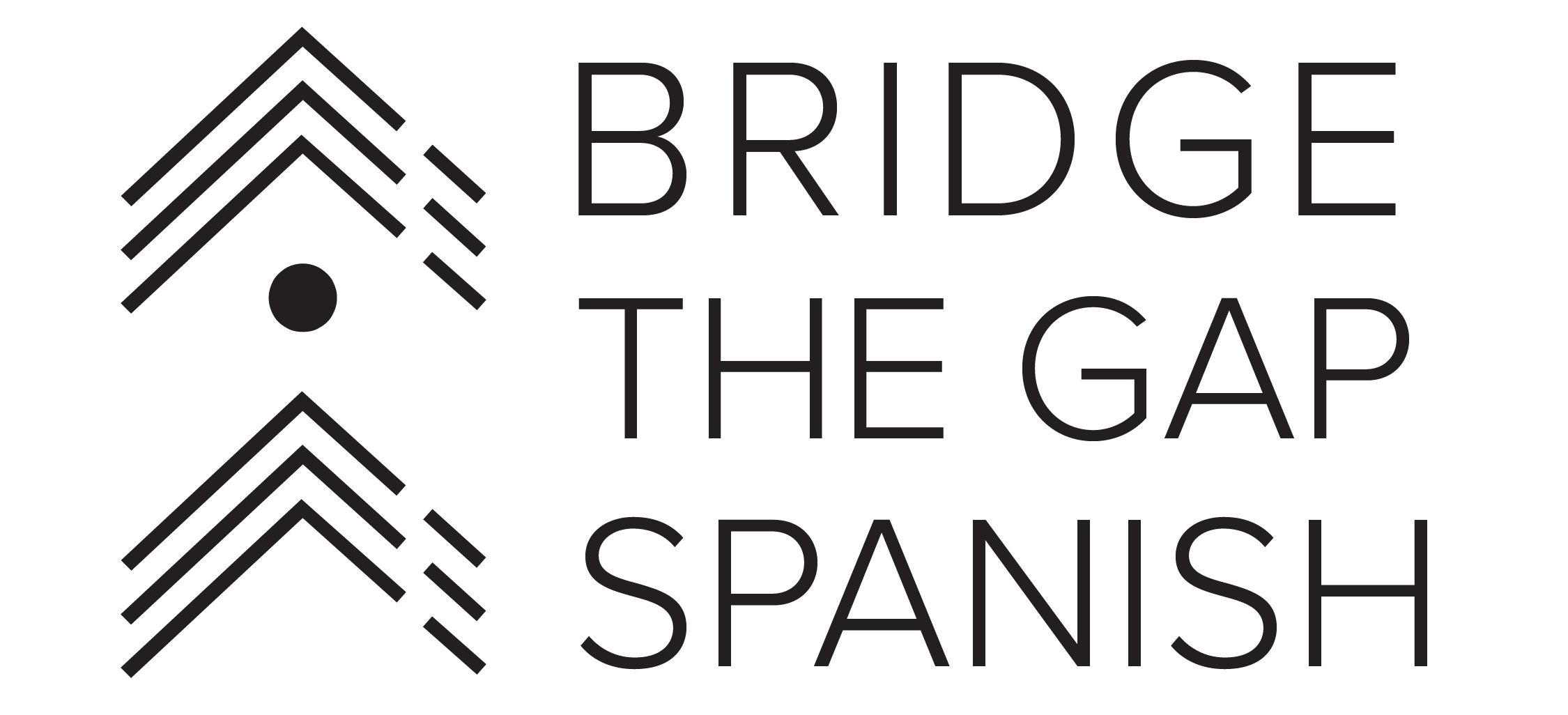Imagine you’re ordering empanadas in Buenos Aires, or asking for directions in a busy street market, or catching a bus in hilly Guatemala, armed with zero Spanish. Zilch, nada. Super-stressful.
Now add a few key Spanish words. Less stress.
Now add a few vital phrases, and more stress melts away.
Finally, add all of the Spanish phrases and words in this post—now we’re nearly stress-free! (And pretty proud of ourselves too.)
You don’t need to be fluent to get by, but a little effort goes a long way. Learning some of the most common Spanish phrases—like ¿Cuánto cuesta? (How much does it cost?), ¿Dónde está el baño? (Where’s the bathroom?), or por favor (please)—can help you ask simple questions, navigate unfamiliar situations, and show respect along the way.
You’ll have to put in a little work, but learning a few go-to phrases can make everyday travel situations feel way more manageable. Here are some essential Spanish phrases to help you feel a bit more prepared on your trip.
Why Learn Spanish for Travel?
We touched on this earlier, but it’s worth diving in a bit more. Knowing just a handful of Spanish phrases can make a real difference when you’re traveling. It helps with the basics—like ordering food (Quiero esto...) or asking where the bank is (¿Dónde está el banco?)—but it also does something bigger: it opens doors.
When you speak even a little Spanish, you’re more likely to connect with people, have real conversations, and experience things you might otherwise miss. It shows respect for the culture, and in places where English isn’t widely spoken (especially in rural areas of Latin America), it can make everyday interactions go a lot more smoothly.
It can also help you avoid tourist traps, build friendships, and come home with stories you wouldn’t have had if you’d just stuck to English.
Greetings & Goodbyes
Let’s start with the basics. These are the phrases you’ll reach for constantly—getting into a taxi, walking into a shop, asking for help, or just showing respect. You don’t need perfect grammar or a big vocabulary to be polite and friendly in Spanish—just a few go-to expressions and a willingness to use them.
Common Greetings & Goodbyes
These quick phrases help you start and end interactions on a good note:
-
¿Cómo está? – How are you? (formal)
-
¿Cómo estás? – How are you? (informal)
-
Bien, gracias – Fine, thank you
-
Mucho gusto – Nice to meet you
-
Adiós – Goodbye
-
Hasta luego – See you later
-
Nos vemos – See you
-
Chao – Bye (informal)
-
Buenos días – Good morning
-
Buenas tardes – Good afternoon
-
Buenas noches – Good night
Polite Words & Phrases
Kindness and clarity go a long way—especially when you’re in a new place. These short phrases help you show respect, ask for help, or smooth over awkward moments:
-
Por favor – Please
-
Gracias – Thank you
-
De nada – You’re welcome
-
Lo siento – I’m sorry
-
Disculpe – Excuse me
-
Con permiso – Pardon me (to pass by someone)
-
No entiendo – I don’t understand
-
¿Puede repetir, por favor? – Can you repeat, please?
You don’t need to say much to make a good impression. A simple hola (hello), gracias (thank you), or con permiso (pardon me) can go a long way toward starting conversations on the right foot and showing respect for the people around you.
Ask the Right Questions
When you’re traveling, asking the right questions can make all the difference. Whether you’re trying to get directions, check prices, or just figure out what’s going on around you, these simple Spanish questions are a great place to start.
Of course, full sentences are helpful—but if you don’t have them yet, saying something like ¿Dónde? (Where?) or ¿Cuánto? (How much?) clearly and kindly can still get the job done.
Here are some essential Spanish questions you’ll hear and often use:
-
¿Quién? – Who?
-
¿Qué? – What?
-
¿Dónde? – Where?
-
¿Cuándo? – When?
-
¿Por qué? – Why?
-
¿Cómo? – How?
-
¿Cuánto? – How much?
-
¿Cuántos? – How many?
Even if you don’t know the whole sentence, these question words can help you start a conversation, get the info you need, and keep things moving when you’re not sure what’s next!
Directions & Getting Around
Getting turned around in a new place can feel overwhelming, especially if your phone dies or your map app sends you in circles. That’s when knowing just a few Spanish phrases can make a big difference.
Maybe you’re trying to find your Airbnb, figure out which bus to take, or just make sure you’re heading the right way. These words can help you ask for directions, understand the answers, and feel a little more grounded when things get confusing—whether you’re in a bustling city or a small town in a Spanish-speaking country. Here are some go-to phrases to know:
-
¿Dónde está…? – Where is…?
-
a la derecha – to the right
-
a la izquierda – to the left
-
derecho – straight ahead
-
cerca / lejos – near / far
-
aquí – here
-
allí – there
-
una cuadra – a block
-
el mapa – the map
-
la estación – the station
-
el autobús – the bus
-
el taxi – the taxi
-
el tren – the train
-
el aeropuerto – the airport
With just a little patience, a good guess now and then, and maybe some pointing at a map or street sign, you’ll likely figure it out as you go.
Eating & Ordering Food
Trying new food is one of the best parts of traveling. From street tacos that drip with salsa to crispy empanadas and rich paella, meals become memories. Once you sit down to order, though, it’s nice to have a few Spanish phrases in your back pocket—so you can ask questions, order confidently, and avoid any surprises (like extra spice you didn’t see coming).
Here are some handy phrases in Spanish for eating out, especially if you’re tasting your way through Latin America:
-
Una mesa para dos, por favor – A table for two, please
-
La carta, por favor – The menu, please
-
¿Qué me recomienda? – What do you recommend?
-
Quiero esto – I want this
-
¿Cuánto cuesta? – How much does it cost?
-
Está delicioso – It’s delicious
-
La cuenta, por favor – The check, please
-
Sin picante, por favor – No spice, please
-
Con hielo / sin hielo – With ice / without ice
-
Agua sin gas / con gas – Still water / sparkling water
Every meal’s a chance to try something new, connect with locals, and maybe even discover your new favorite dish. It’s also the perfect time to practice your Spanish. Lean in, be curious, and enjoy the ride (even if you’re not totally sure what you just ordered!). And also check out our recent blog post: 10 Helpful Spanish Phrases for Ordering at a Mexican Restaurant (with audio).
Shopping: Markets, Souvenirs, and Street Vendors
For a lot of travelers, exploring local markets is one of the most memorable parts of a trip—colorful stalls, the smell of grilled corn or spices in the air, handmade goods stacked high. But when it’s time to ask for prices or make a purchase, the language barrier can make things a little awkward.
Here are a few phrases that’ll help you ask questions and shop with confidence:
-
¿Cuánto cuesta esto? – How much does this cost?
-
¿Acepta tarjeta? – Do you take cards?
-
¿Tiene otro color/tamaño? – Do you have another color/size?
-
Quisiera comprar esto. – I’d like to buy this.
-
Es muy caro. – It’s very expensive.
-
¿Puede darme un mejor precio? – Can you give me a better price?
In many Spanish-speaking countries, especially at markets and small stalls, asking for a discount is totally normal—and sometimes expected. It’s not just about saving a few bucks; it’s part of the rhythm of local life. A little friendly back-and-forth can make shopping more fun and help you feel more connected to the place you’re in. For more phrases related to shopping, be sure to check out our blog post: Shopping in Spanish: Your Go-To Guide for Vocab.
At the Hotel or Airport
Checking into your hotel after a long day of travel? Trying to figure out where to drop your bags or when your flight boards? These are the kinds of moments where knowing a few simple Spanish phrases can make things a lot easier.
Here are some basics that come in handy in hotels and airports:
-
Tengo una reservación – I have a reservation
-
¿Dónde está el baño? – Where is the bathroom?
-
Necesito ayuda – I need help
-
¿Cuánto cuesta por noche? – How much per night?
¿A qué hora es el check-out? – What time is check-out? -
Una llave, por favor – A key, please
-
El equipaje – Luggage
-
La maleta – Suitcase
-
El pasaporte– Passport
-
La tarjeta de embarque – Boarding pass
-
¿Dónde está la llave? – Where is the key?
You don’t need to explain everything perfectly, but just knowing how to ask the right question can help things go way more smoothly.
Numbers & Money
Whether you’re buying a snack, paying for a room, or grabbing a bus ticket, numbers come up a lot when you’re traveling. If you’re not comfortable with them yet, it can get confusing fast—especially when prices are said quickly or written in unfamiliar formats.
Here are a few common phrases and number words you’ll hear often:
-
Uno, dos, tres – One, two, three
-
Diez, veinte, cincuenta – Ten, twenty, fifty
-
Cien, mil – One hundred, one thousand
-
¿Cuánto cuesta? – How much does it cost?
-
¿Cuánto cobra? – How much do you charge?
-
¿Aceptan tarjeta? – Do you accept cards?
-
¿Tiene cambio? – Do you have change?
If you’re not sure what someone said, don’t stress. Just ask:
-
¿Puede escribirlo, por favor? – Can you write it down, please?
-
¿Puede repetirlo más despacio? – Can you repeat that more slowly?
And if you want a quick and easy way to learn the numbers from 1 to 100, check out this guide we made. It’ll make all your market trips and money exchanges way less stressful.
Time & Scheduling
Tours, buses, museum hours, dinner reservations—timing matters when you’re traveling. Knowing how to ask about time (or understand the answer) can help you stay on track and not miss out.
Useful time-related phrases include:
-
¿Qué hora es? – What time is it?
-
¿A qué hora? – At what time?
-
¿Por cuánto tiempo? – For how long?
-
Es la una – It’s one o’clock
-
Son las dos, tres, cuatro, etc. – It’s two o’clock, three o’clock, four o’clock, etc.
-
Media – Half past
-
Cuarto – Quarter past
-
Temprano – Early
-
Tarde – Late
-
Hoy – Today
-
Mañana – Tomorrow
-
Ahora – Now
-
Luego – Later
-
Más tarde – Much later
Want to know when something opens or when to meet up? These phrases will help you ask and understand the answer. And if you’re ever unsure, just point to your phone or watch and say: ¿Puede repetirlo, por favor? – Can you repeat that, please?
Other Useful Spanish Phrases for Tourists
No matter how much you prepare, you’re bound to hit a moment where you blank or just don’t know the right word. These phrases are great for keeping the conversation going, asking for help, or easing through the awkward moments.
-
No entiendo – I don’t understand
-
¿Puede repetirlo, por favor? – Can you repeat that, please?
-
¿Puede hablar más despacio? – Can you speak more slowly?
-
¿Puede ayudarme? – Can you help me?
-
Estoy perdido/a – I’m lost
-
Estoy buscando… – I’m looking for…
-
¿Hay wifi? – Is there Wi-Fi?
-
Está bien – It’s okay
-
No pasa nada – No problem
-
¿Habla inglés? – Do you speak English?
-
Un poco – A little
-
¿Cómo se dice? – How do you say?
-
¿Cómo te llamas? – What is your name?
These are the sort of phrases you’re glad to have when you need them. They’ll help you stay in the conversation, even when your Spanish runs out. Also, practicing how to pronounce Spanish words clearly can make a big difference in being understood and feeling confident while speaking. So don’t forget to practice that too! If you’d like to practice with a native Spanish speaker, be sure to learn more about our program here.
Bonus Travel Tips
Travel can throw all kinds of surprises your way, especially when you’re speaking another language. To help you roll with whatever comes up, here are a few simple things that really make a difference when using basic Spanish travel phrases:
-
Speak slowly and clearly. You don’t need a perfect accent—just take your time. People appreciate when you make an effort, and slowing down helps avoid confusion.
-
Use your hands. Gestures like pointing or even a smile can say a lot when words don’t come easy. It’s a universal language that breaks down barriers fast.
-
Have a translation app ready. Google Translate, SpanishDictionary, and others are lifesavers when you get stuck, especially if you download the language packs beforehand so you’re not relying on wifi.
-
Practice a little every day before your trip. Even five minutes helps your brain get familiar with the sounds and builds your comfort level for real conversations. But of course, the more the better!
These small habits don’t just help you get by—they’ll likely make your trip smoother and more enjoyable. And locals notice when you try!
Want to Feel More Prepared?
You don’t have to figure it all out on your own. If you’ve got a trip coming up, or you just want to feel more confident speaking Spanish, we’ve got you.
At Bridge the Gap Spanish, we offer warm, one-on-one lessons focused on real-life conversations. You’ll learn the kind of Spanish that helps you explore new places, connect with locals, and handle the unexpected.
We’ll help you build your speaking skills, ask questions without freezing up, and feel ready for the kinds of moments you can’t plan for, like chatting with someone at a café or asking for help when you’re a little turned around.
Sign up on our website and get matched with a native Spanish speaker who will help you speak more naturally, travel more confidently, and connect in ways you never could before.
Want to see what that looks like in real life? Watch this quick testimonial from one of our learners who just returned from a trip to Honduras—he shares how Bridge the Gap prepared him to connect and communicate with confidence.
We can’t wait to help you do the same!
Did you enjoy this post? You’ll love our 50 Easy Spanish Conversation Questions too!



